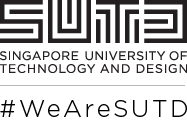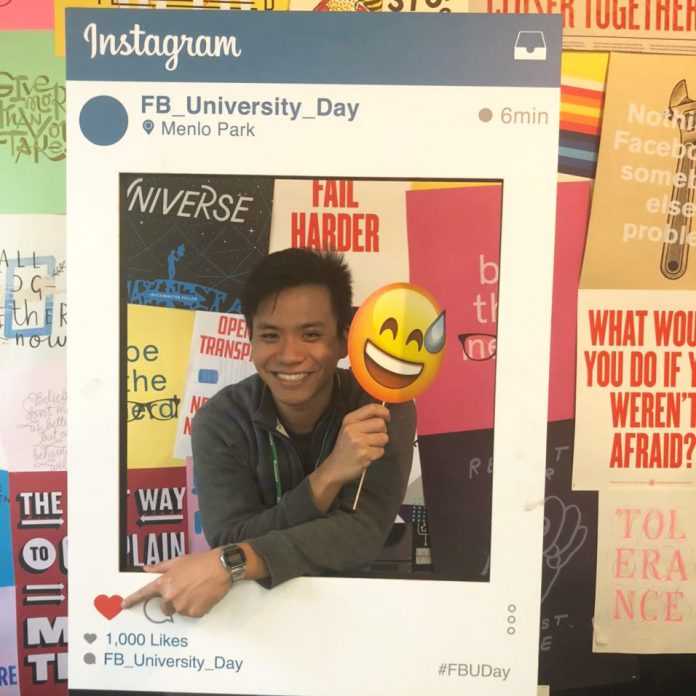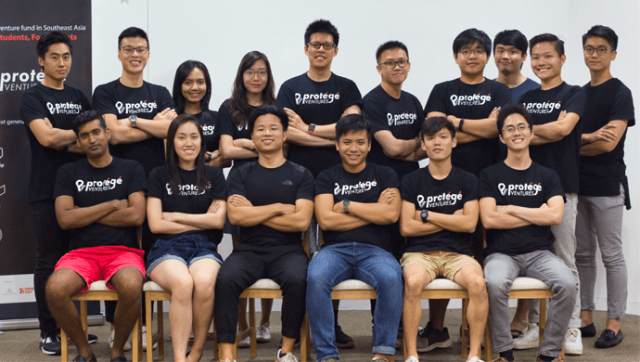From dabbling in humanities to learning about businesses, it’s not just 1s and 0s for the budding software engineer
Lionell Loh
Senior-year Information Systems Technology and Design student
Why did you choose to study at the Singapore University of Technology and Design (SUTD)?
I chose to study at SUTD for a number of reasons – SUTD offers computer science in the form of the Information Systems Technology and Design (ISTD) programme, and I was given a scholarship award to study here. I was also attracted by the prospects of self-initiation in a new school. Lastly, SUTD’s motto of “A Better World by Design” resonates with my sense of purpose.
Why did you choose to major in Information Systems Technology and Design (ISTD)?
I’ve always wanted to contribute to the world in a positive way, and I’m convinced that information technology is one of the best vehicles to effect change in an increasingly digitised world. After all, this discipline’s versatility has already allowed it to solve many problems and create value for our generation.
I enjoy the logical aspects of this specialisation. The many theories and knowledge we learnt in this field are rooted in math, logic and good decisions made by great pioneers of the past. I also see computer science as a fusion of art and science. For example, the work that we do is similar to solving a big puzzle, which comprises of many smaller puzzles. To me, addressing the big puzzle by identifying and tackling the smaller puzzles is an art that we hone through experience. Different people will choose to approach the same problem differently, accepting trade-offs with the use case and context in mind. As practitioners of computer science and engineering, complexity is inherent in our line of work, and we take pride in navigating this complexity with our skills and experience.
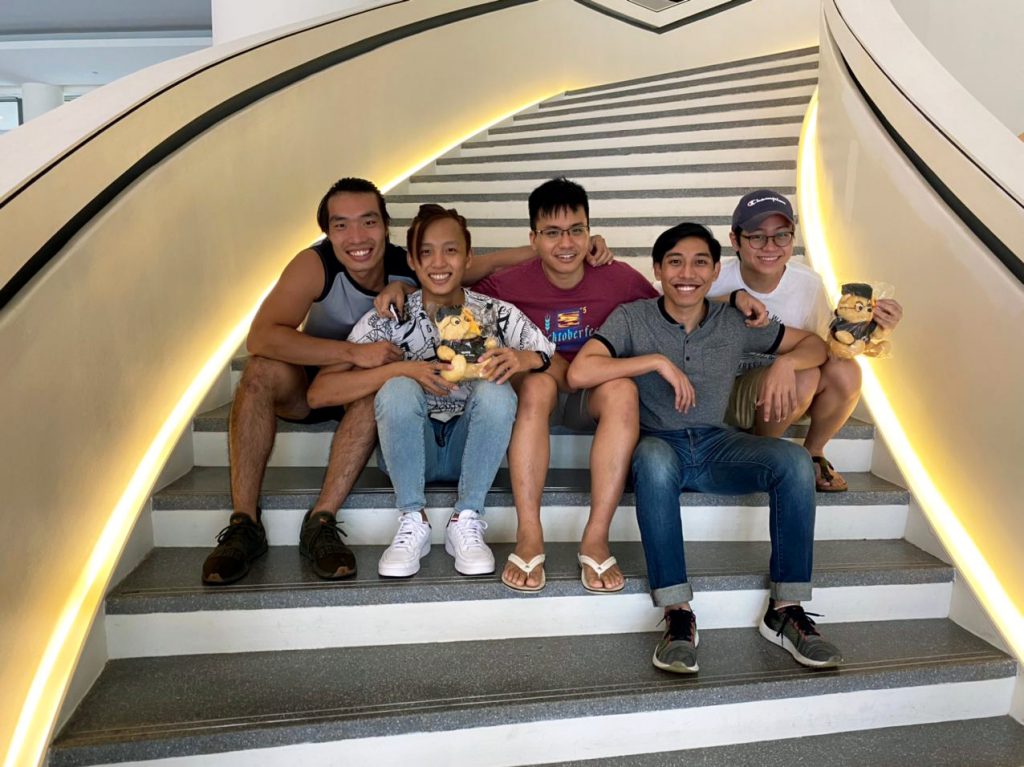 Collecting our graduation certificates in SUTD
Collecting our graduation certificates in SUTD
You have won many awards and created many innovations during your time at SUTD. How did SUTD support you through these endeavours? Was there a particular professor or club that helped you greatly?
I think SUTD has been a great pillar of support in both tangible and intangible ways. In tangible ways, I benefited from many programmes in SUTD, such as Design Odyssey, Undergraduate Research Opportunities Programme (UROP) and Outbound International Undergraduate Research Opportunities Programme (iUROP).
Design Odyssey is a mentorship programme that teaches design thinking through projects, and through this I learnt about the design process, as well as the various stages of building, learning and iterating a product’s development.
Both UROP and iUROP are undergraduate research programmes; I took part in the latter (which is the international version) where I studied in Chiba University’s Healthcare Robotics Lab. The research there was difficult, and the experience instilled in me a sense of “intellectual resilience” – i.e. how do you understand something difficult from a sea of literature on the Internet with minimal guidance? Most importantly, I found inspiration from being exposed to some of the best researchers in the field.
In intangible ways, there is a strong sense of community spirit in SUTD. We help each other readily, which from the big picture perspective benefits everyone. We see problems around us in terms of its potential solutions. It’s easy to talk about an existing problem with friends and discuss possible solutions for it – and if there is sufficient excitement, a side project is born!
I’ll also like to give a special mention to the Entrepreneurship Centre and ISTD office for monetarily and morally supporting my projects and endeavors, which allowed me to travel, compete, experience and learn.
I’m indebted to too many staff and professors – Mr. Seah Hou Liang, Associate Professor Huang Shaoyin, Associate Professor Arlindo Silva, Associate Professor Luo Jianxi, Professor Lim Sun Sun, Dr. Pang Yang Huei, Assistant Professor Sudipta Chattopadhyay, Professor Tony Quek, Assistant Professor Wang Xingyin and Faculty Fellow Andrew Yee. These people believed in me, advised me and rooted for my growth at various points in my university life, and they represent what SUTD means to me.
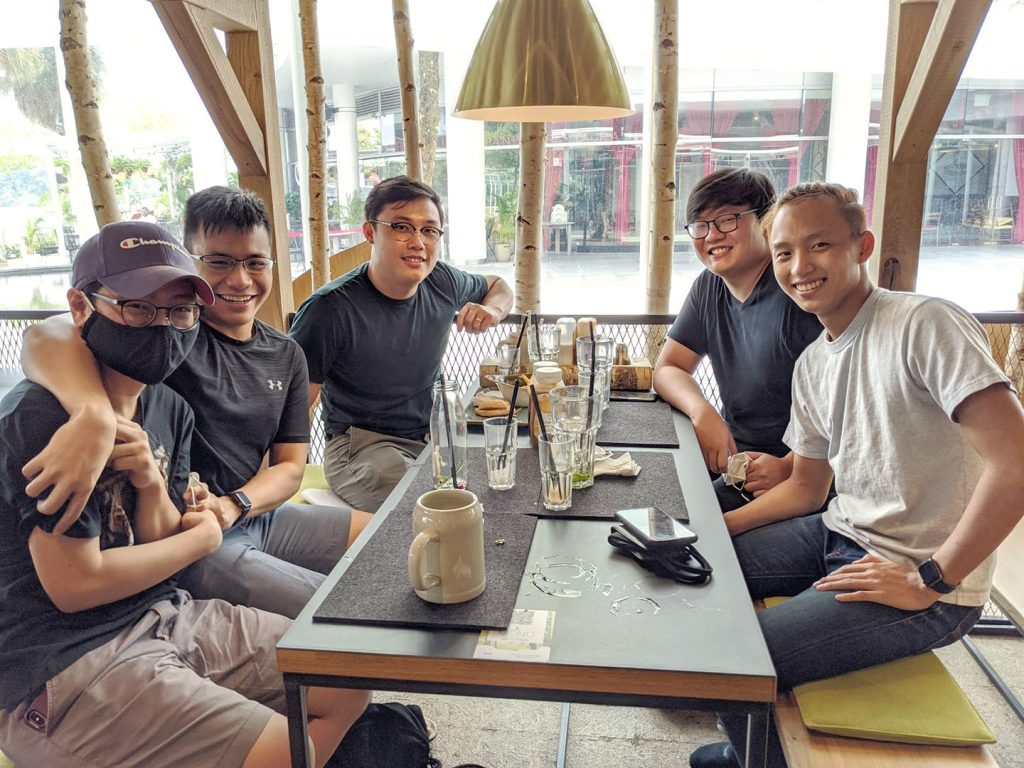 Meeting up with friends and Prof Andrew Yee (third from left)
Meeting up with friends and Prof Andrew Yee (third from left)
In your opinion, what was the most interdisciplinary class or module that you attended at SUTD?
I think one of the most interdisciplinary modules would be Introduction to Design. There were many facets to this course. We did a mixture of software and hardware work, and plenty of rough prototyping. We were also encouraged to explore applications of what we learnt in Advanced Mathematics, where my teammates and I analysed the mathematics behind the Viola-Jones face detection algorithm and Adaboost algorithm used in the software. There was even a Humanities, Arts and Social Sciences (HASS) component in the class, which we alluded to Descartes’ work in Meditations on First Philosophy about the distinction between Awake and Asleep. After we completed the module, we explored the commercial viability of the project and submitted it for various competitions such as the Create4Good Competition and Startup Autobahn Hackathon sponsored by Daimler. Create4Good is a competition jointly organised by SUTD and SMU to encourage technology-oriented businesses that aligns doing well and doing good. Startup Autobahn is a programme in search of innovative implementations that can potentially cast light in the future of mobility.
You were an associate, and later the managing partner at the student venture capital fund Protégé Ventures. Tell us more about this experience! How did you land a gig with them? How do you think this experience complements your SUTD degree?
Protégé Ventures’ (PV) raison d’etre is to invest in and support student ventures. To that end, we recruited students from universities. I applied through the standard application process and was lucky enough to get in. After one to two years into PV, I belatedly discovered that I had barely made the cut! Over the years, some of us from the first batch decided to stay on even though we could have left. I think those of us who stayed felt a sense of stewardship and believed that we were part of something special. In the end, this small but tightly knitted group comprising four of us from three different universities stayed on to helm the group from 2019 to early 2020.
Folks from the 0th, 1st and 2nd batch of Protégé Ventures
To me, PV was a great alternative window to the world. In technical disciplines, we tend to put more focus on the engineering concepts, how beautifully we create an app, or build a 3D model, and the impact we aim to create. By exposing me to the other disciplines such as business, finance, and marketing, PV showed me that there are other equally important factors to consider from the get-go, such as market size and the go-to market strategy. In particular, commercial viability is a top-of-mind consideration when we evaluate a startup for investment in PV. We also learnt to look at an innovation in terms of other factors such as the size of the problem, whether something similar has been done before, and how affordable the solution is before we decide to develop it. Thanks to PV, I learnt to question why something should be built even before thinking about the “how” aspect.
Just as my time in PV enhanced my experience in SUTD, my engineering background from SUTD also complemented my time in PV. These days, many ventures are technology-based, so my engineering knowledge allowed me to do a deeper technological due diligence, as well as be more critical about a team’s “Technological Defensibility”. I was often roped in to help evaluate startups from a technological standpoint so that was extremely fun and motivating.
Why do you think it is important for students in your major to learn about business and other subjects like HASS?
In general, I think it’s important to be well rounded, and people who are versed in business have more options to develop their career. Even traditional engineers who prefer to focus only on their technical craft can benefit greatly from learning business – for starters, they will be able to improve their execution abilities. After all, there’s only so much specifics and details that a requirements document can get into, so by understanding business considerations, one can create better products by seeing how they fit into the bigger picture.
HASS gives you an alternative view of the world, and I think having a dose of the alternative is always good. You don’t want to only surround yourself with like-minded people, because this essentially forms an echo chamber that will limit your worldview. Instead, you’ll want to meet people who are contrarian to your beliefs, and who can challenge you. You may even want to meet someone who puzzles you in their attitudes and way of life. I believe that by dealing in and with the unfamiliar, you’ll learn and gain new perspectives.
Personally, the lessons I’ve learnt in HASS have taught me to ask meta-questions about technology. Questions like “should this technology/product exist”, “how should it be deployed”, “what are its consequences” etc. I believe these are questions that technologists, engineers and researchers must be able to ask themselves every now and then.
How did your lecturers/professors at SUTD teach or inspire you to make a difference in the world with your education?
There are some incredible professors in SUTD who really exemplify good teaching and deep expertise. Two professors come to mind – Professor David Yau and Associate Professor Lu Wei. They can explain concepts from the first principles perspective very well, and take us through the thought processes of great minds that led them to establish the theorems we use today.
Just like how advanced technology may seem like magic, good professors are able to break down complex theories and still enrapture their students, like how a magician reveals the mechanisms of a trick.
I became a Teaching Assistant (TA) for algorithms in term 6, and I strived to emulate Prof. Yau. I wanted to be a TA who can impart deep understanding, and can teach my students to think from the first principles perspective as best as I can.
Do you think SUTD trained you to become a problem solver and critical thinker who is able to bring ideas to life?
Yes! My schoolmates, lecturers and instructors asked tough questions all the time. After a while, I learnt to ask tough questions myself. We’re assigned many projects in SUTD, and it really helped to be collaborative, proactive, and to have a strong bias for action. In fact, these factors are crucial in bringing ideas to life. So yes, the projects-based education in SUTD trained us well for the future.
You’ve landed a job with Facebook — congratulations! What excites you most about being able to work with Facebook? Do you think your SUTD degree and experience helped you to achieve this success?
I think Facebook is trying to better the world on multiple fronts – so that in itself is already exciting. There’s a huge potential for positive innovation, but at the same time, there’s an equally big opportunity to minimise the inadvertent, adverse effects of the platform. This includes fake news and hate speech that have unfortunately slipped through the loopholes of Facebook. You can think of Facebook’s spectrum of impact as a vertical bar, where the top represents the best impact and the bottom, its worst. For a long time, people have been debating where the weighted average of this bar lie – whether Facebook is more good than bad. One prospect that excites me is the opportunity to push the bottom part of the bar upwards, and to reduce the negative impacts of the platform.
SUTD has definitely played a part in helping me achieve this success. I also had a budding but respectable community of seniors who were eager to help and see me succeed. I owe my success to them and I’m determined to pass it forward.
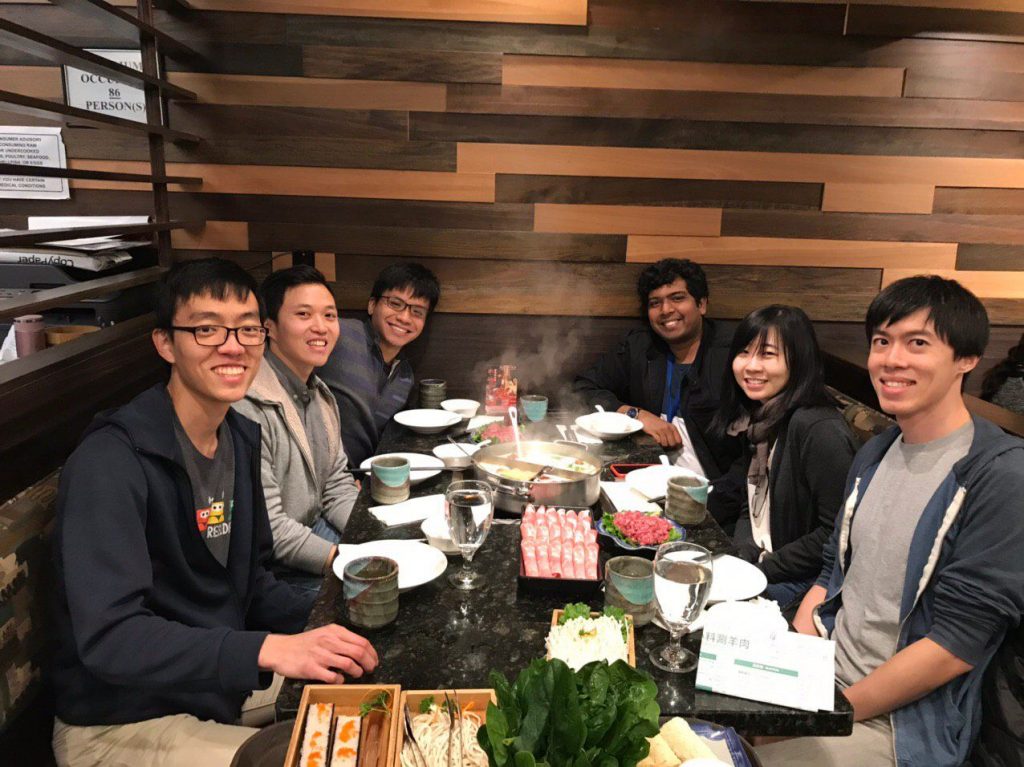 SUTD Seniors working in the Bay Area – many of whom gave me valuable advice and inspiration
SUTD Seniors working in the Bay Area – many of whom gave me valuable advice and inspiration
What’s the most valuable skill you’ve acquired at SUTD?
As a software developer, what I create, I deploy into the digital sphere. Some of my work are new and interesting, while others are trite and cliché. With the coding skills I’ve developed, it’s increasingly easier for me to build and upload my creations online.
I think developers tend to be somewhat swashbuckling and irreverent. They make what they want – sometimes just for the inherent satisfaction of creation, and they may release it into the digital world on a whim. One example is deepfake. About a year ago, there was an app released that can turn photos of fully clothed individuals into naked ones. The underlying technology was no doubt impressive, but that episode sparked a discussion about the need for ethics. SUTD has taught me to be deliberate about what I am building; to ask “why”, to do my research about what is currently available out there, and to question the marginal good my creation can bring to the world. I’ve learnt to ask the difficult philosophical/ ethical question of what I build, summarised by this seemingly simple question of “should this exist”? And as Nietzsche and Simon Sinek would converge – “start with why, and those who have a why to build will bear with any how.”
Like what you just read?
Missed our Open House talks? Rewatch the sessions here.
#whySUTD? We’re glad you asked – here’s why!
It can be hard to ask the right questions that will help you to decide which university to join, so we’ve compiled a list of FAQs for you here.
